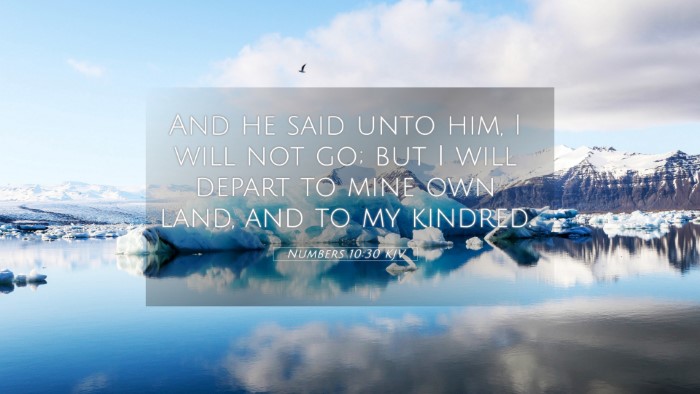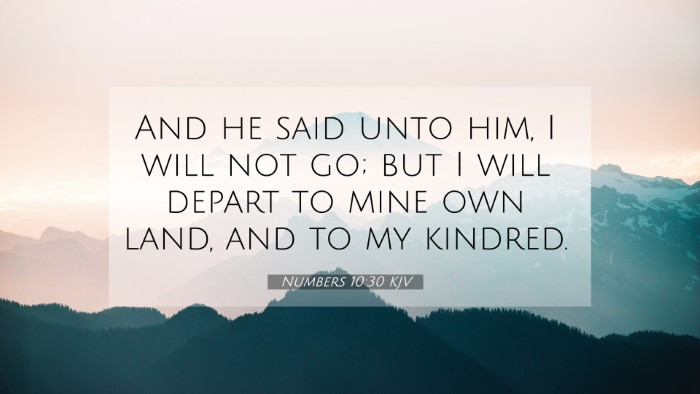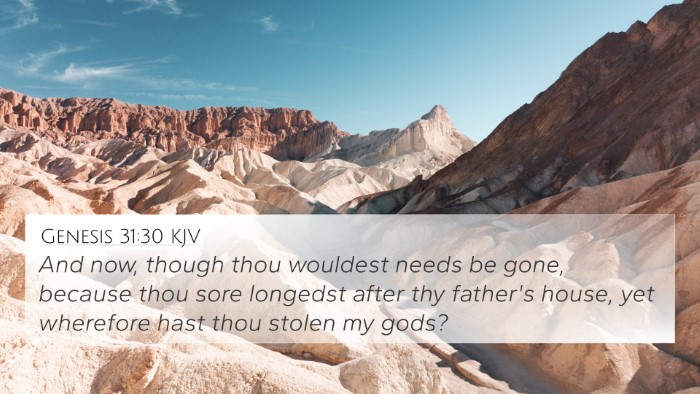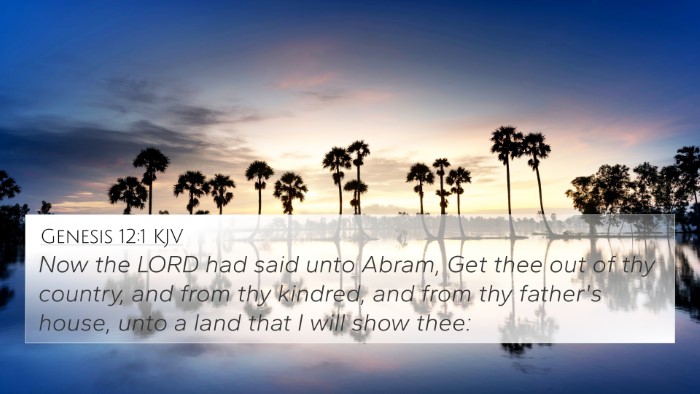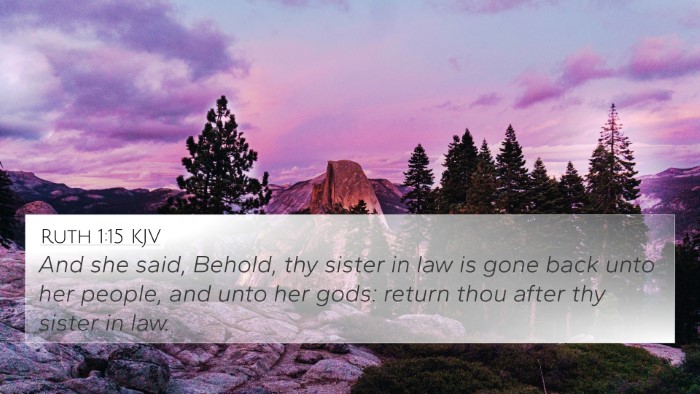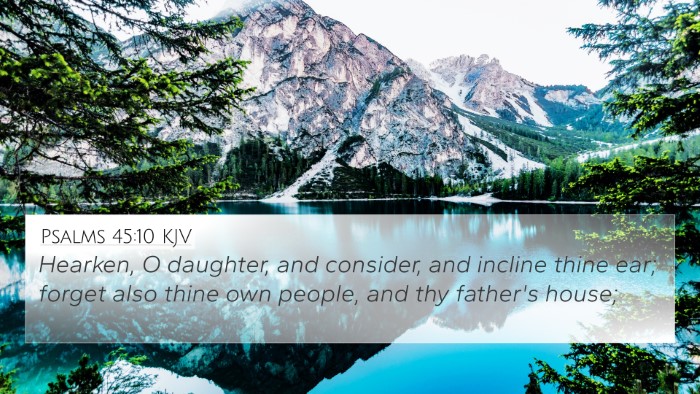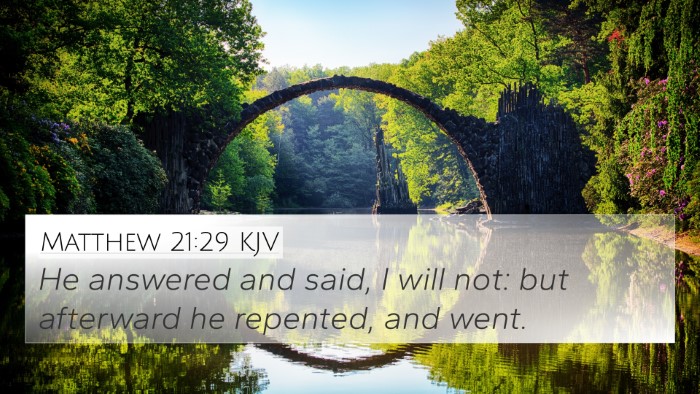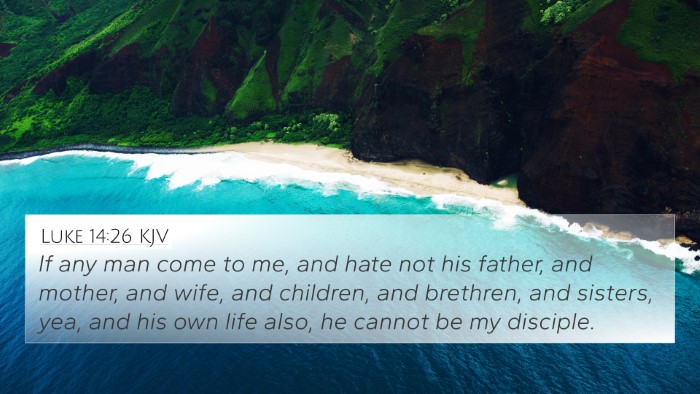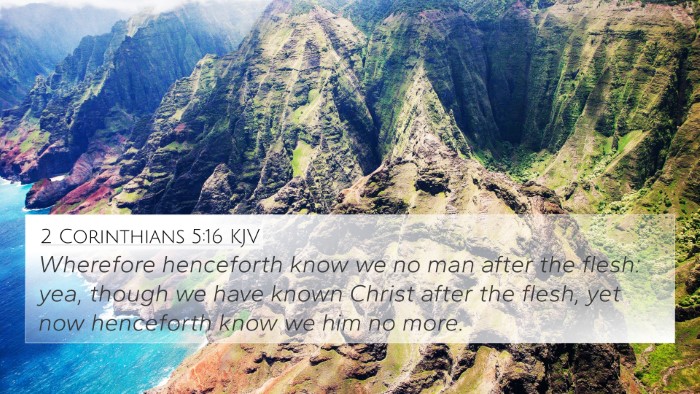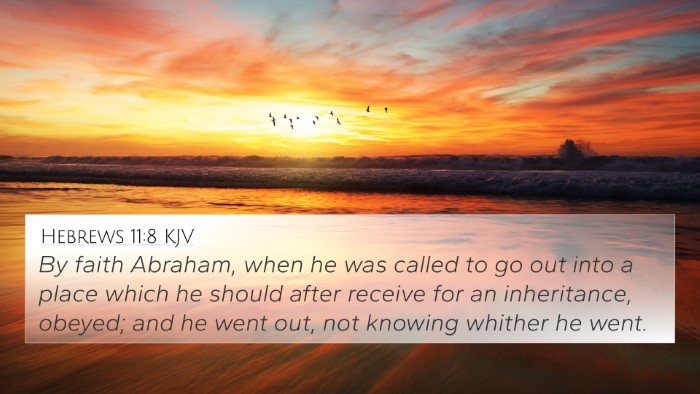Understanding Numbers 10:30
Verse Reference: Numbers 10:30 (KJV) - "And he said unto him, I will not go; but I will depart unto mine own land, and to my kindred."
Summary and Context
This verse occurs during the Israelites' journey through the wilderness, capturing a dialogue between Moses and Hobab, the son of Reuel. The request made by Moses for Hobab to guide them emphasizes the need for support and wisdom in navigating challenges, reflective of the broader themes of leadership, community, and divine guidance.
Combined Insights from Public Domain Commentaries
-
Matthew Henry:
Henry focuses on the implications of Hobab's refusal to accompany the Israelites, suggesting that it reflects the tension between familial obligations and the call to communal service. He posits that Moses valued Hobab's knowledge of the wilderness, and this speaks to the importance of surrounding oneself with wise counsel when undertaking significant journeys. This context correlates with the theme of seeking divine direction through trusted individuals.
-
Albert Barnes:
Barnes emphasizes the strategic importance of Hobab’s expertise. He notes how Hobab's knowledge of the geography of Canaan would have been invaluable to the Israelites at this juncture. This practical aspect is essential for understanding the interplay of divine guidance with human wisdom—a recurring motif throughout Scripture that encourages the faithful to utilize available resources.
-
Adam Clarke:
Clarke highlights the emotional undertones of the narrative, suggesting that Hobab's hesitance to leave his own land reflects a deeper connection to family and heritage. This perspective aligns with the overall Biblical theme of loyalty and identity, affirming that relationships play a crucial role in one's spiritual journey while also recognizing the necessity of following God's calling.
Bible Verse Cross-References
In exploring Numbers 10:30, several cross-references enhance our understanding:
- Exodus 18:1-27: Jethro's advice to Moses emphasizes the needs for wise counsel in decision-making.
- Numbers 10:29: Preceding verse where Moses invites Hobab, showcasing the importance of community.
- Deuteronomy 1:31: Refers to God’s preceding care, paralleling Hobab's significance to the community.
- Proverbs 15:22: "Without counsel, purposes are disappointed: but in the multitude of counsellors they are established."—highlighting the value of wise advice.
- Proverbs 27:17: "Iron sharpeneth iron; so a man sharpeneth the countenance of his friend."—reflecting the benefit of surrounding oneself with capable individuals.
- Isaiah 40:31: The Lord’s guidance provides strength in times of journey and uncertainty.
- Acts 15:37-39: Paul and Barnabas’s disagreement over Mark—showing personal conflicts in ministry and the need for discernment.
Thematic Connections
The themes present in Numbers 10:30 resonate throughout various parts of the Bible, emphasizing:
- The Importance of Community: The dialogue illustrates that the journey of faith often necessitates the support of others.
- Divine Guidance and Human Wisdom: The collaboration between Moses and Hobab highlights the intricate balance of faith and practical knowledge.
- Familial Bonds vs. Spiritual Call: Engaging with familial ties while answering a higher calling is a recurring conflict in Biblical narratives.
Exploring Inter-Biblical Dialogue
Understanding the connections within Scripture is vital. The cross-references not only enhance one’s ability to study passages in context but also offer a method of thematic exploration throughout the Bible:
- The tools for cross-referencing help in identifying significant linkages across both the Old and New Testaments—demonstrating God’s continuous plan.
- Comparative Bible verse analysis allows us to glean insights about the shared motifs of guidance, support, and spiritual conflict.
- Exploring Bible concordance deepens the understanding of key terms and messages found in Numbers 10:30 and its parallels.
Conclusion
Numbers 10:30 serves as a microcosm of broader Biblical teachings on community, guidance, and the conflict between personal ties and divine calling. Engaging with related verses and themes enhances both individual study and group discussions, fostering deeper spiritual insights and practical applications for today's believers.

